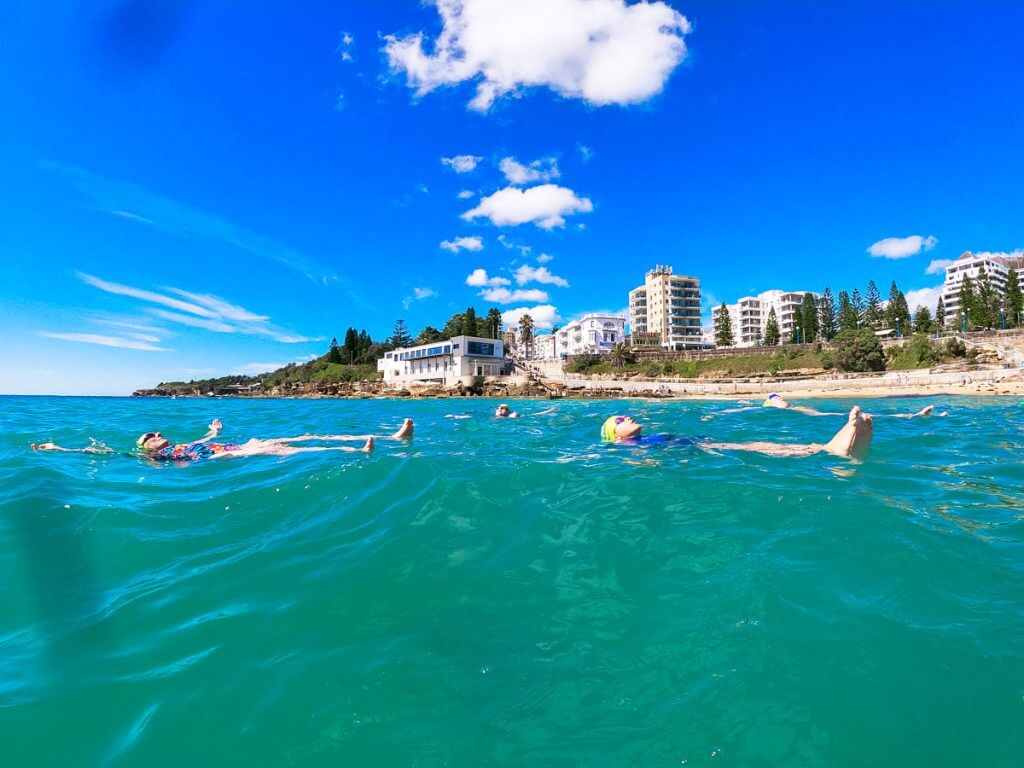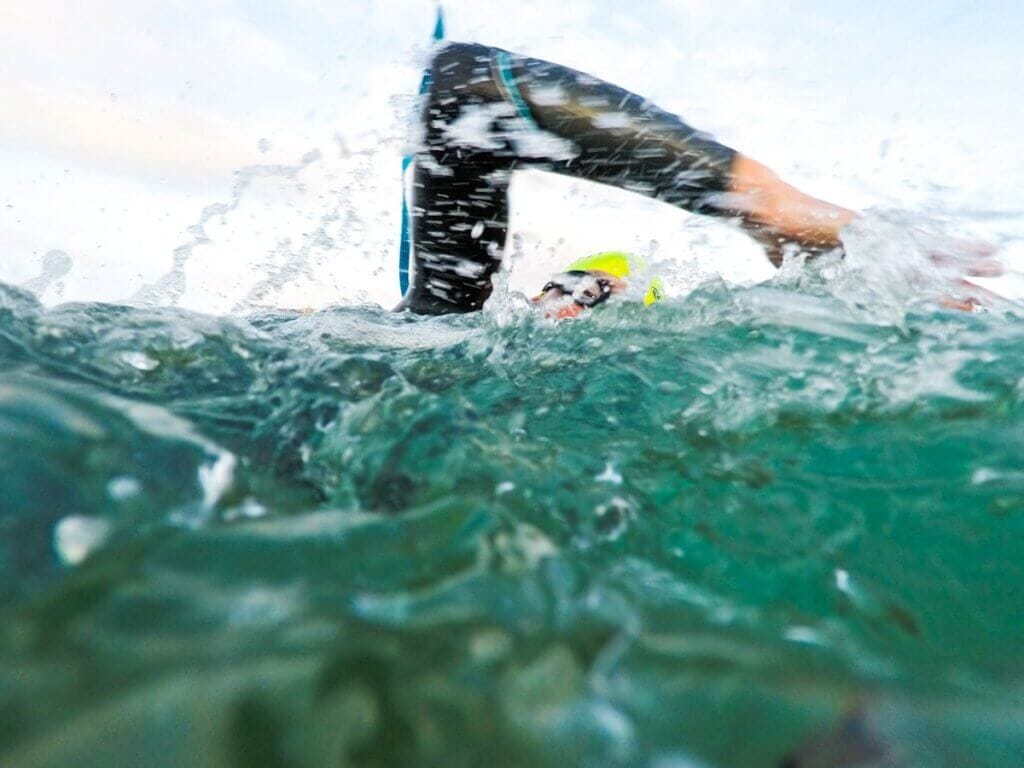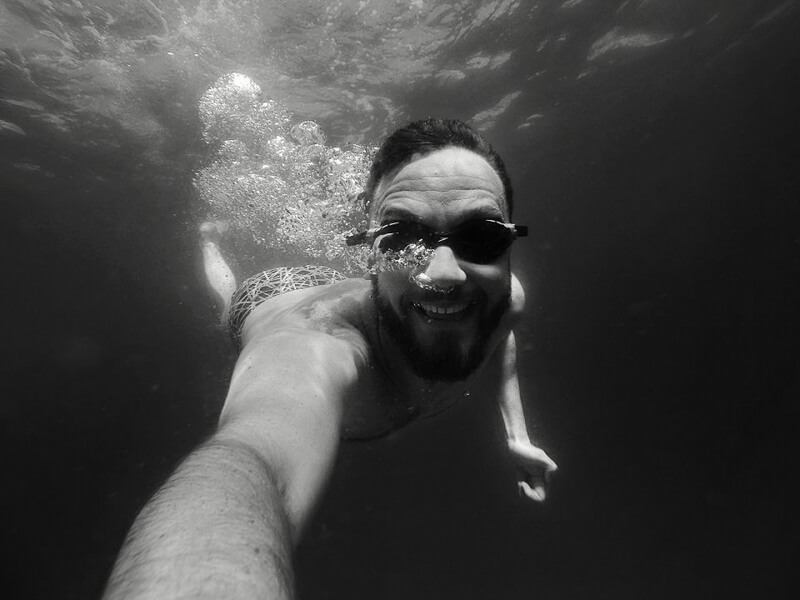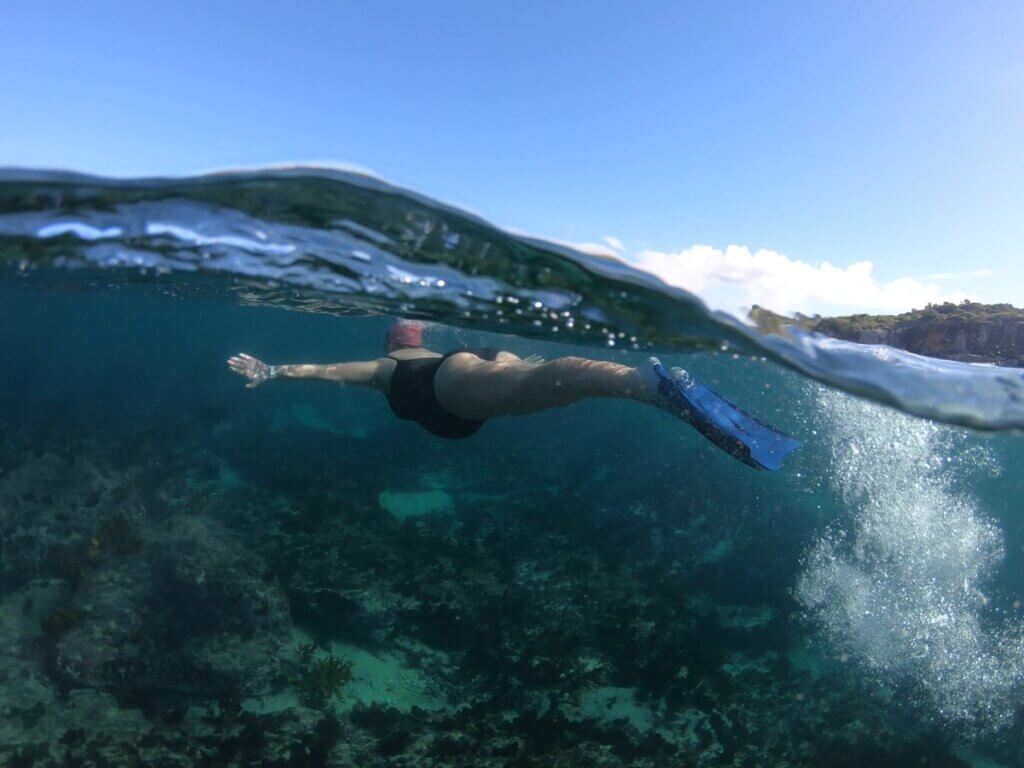How long can you float for? (Bet it’s longer than you think you can)

One of the questions I ask when people are signing up for an OceanFit clinic is “can you float for 2 minutes?”
It’s part of a basic set of questions I use to gauge a person’s swimming ability.
At some clinics, I also put it out as a more general question to the group – “how long can you float for?”
Before you read on, think about how you would answer this question.
2 minutes?
5 minutes?
10 minutes?
That’s about the range of answers I get.
But, here’s the thing. You can most definitely keep yourself afloat for much much longer than that.
To prove it to our participants, one of the many learning outcomes in our clinics is understanding your ‘real’ ability to keep yourself afloat in deep water, as opposed to your – terribly out-of-whack – ‘perceived’ ability.
In our Ocean Confidence clinic, it’s the primary learning outcome and we spend 45 minutes in water over our heads; floating, treading water, and generally doing whatever we can to fill the time, just to prove to participants they can do it.
In our Learn To Ocean Swim clinic, we spend an hour or more out the back learning skills in the deep water, with participants intrinsically learning they have this ability.
Why is it important to know you can float longer than you think you can?
Because, when you know you’ve got time you’ll be able to make rational decisions about your safety. You can plot your own rescue, or wait for help.
On the flip side, those who think that they can only float for a couple of minutes are going to make life-threatening irrational decisions that may have dire consequences. If you thought you only had minutes to live, wouldn’t you?
To prove this theory with a recent real-life example, take this incredible story of Carnival Cruise passenger, James Grimes, who in November fell off the ship he was on and spent more than 15 hours in the water before he was miraculously rescued.
If you’d asked James before he boarded the ship how long he could float, he’d have said he wasn’t capable of floating (because that’s what he told a reporter after being rescued). Yet, he did so for the combined length of time you spend working and sleeping each day.
He went on to say that it was “a miracle that I’m not already dead,” and credited his survival to his faith and positive attitude, adding he even created songs to keep his spirits up.
For someone who ‘couldn’t float’ but spent 15 hours floating, that’s a miracle alright. Or is it?
And so it’s been great to follow the momentum of the team behind the Float To Survive water safety campaign, led by Bondi Rescue star and Waverley Lifeguard, Bruce ‘Hoppo’ Hopkins and surf ironman legend Craig Riddington.
The Float To Survive campaign, similar to the UK RNLI’s Float to Live mantra, is a simple message we can easily communicate with the public in the complex and cluttered world of water safety messaging.
You may not need to hear the message yourself, but you can help spread the word among those who do.






Responses